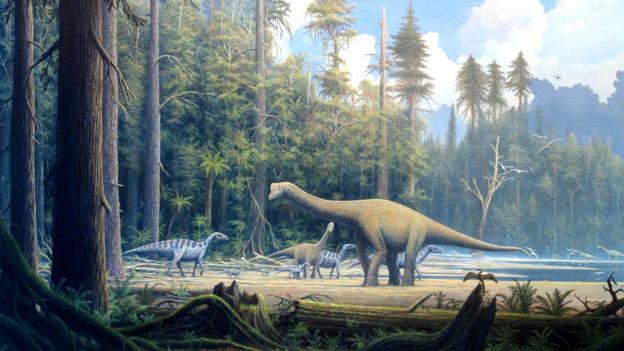Bubblecar said:
An interesting article.
Bizarre diminutive dinosaurs might help explain why no large dinosaurs survive today

Imagine a dinosaur; a sauropod such as a Brachiosaurus, or Diplodocus, one of the largest animals ever to roam the land. A plant-gobbling true giant of a beast, with a graceful long neck and tail. Now imagine that same dinosaur shrunk down to the size of a cow.
Strange as it may seem, such bizarre animals did exist. A number of astonishing fossil discoveries have confirmed that dinosaurs really did come in dwarf form. Their existence not only provides some fundamental insights into dinosaur evolution, it may even help explain why no large dinosaurs survive today.
Full story: http://www.bbc.com/earth/story/20140916-why-dwarf-dinosaurs-were-such-a-big-deal?ocid=sept_AU_outbrain_earth
You often hear that animals on islands become dwarfs of their former self, as if they just shrank, but what exactly would be the evolutionary drive?
Not having large predators I think would be an important factor, as animals shorter in stature on the mainland would more likely fall prey to the large predators and therefore not pass on their genes. However on a predator free island they could and therefore a size reduction seems inevitable.
Nevertheless, another factor might be the lack of food on the island or a less nutritional type that would favour the survival of smaller animals over the large.
Yet another reason might be seasonal weather conditions and available shelter being more suitable for smaller animals.
I would think that a combination of the above could dramatically reduce the average animal size relatively quickly and not the normally more sedate pace of most other evolutionary change.
